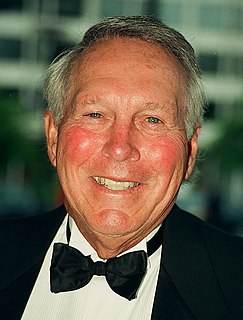A Quote by Evan Osnos
By 1979, Chinese people were poorer, on average, than North Koreans. I mean, your average per-capita income in China that year was one third of sub-Saharan Africa's.
Related Quotes
In comparative terms, there's no poverty in America by a long shot. Heritage Foundation political scientist Robert Rector has worked up figures showing that when the official U.S. measure of poverty was developed in 1963, a poor American family had an income twenty-nine times greater than the average per capita income in the rest of the world. An individual American could make more money than 93 percent of the other people on the planet and still be considered poor.
I think the fact that this was a essentially a person under [China] protection and the North Koreans went and assassinated [Kim Jong-nam], this made be the straw that really does it. And as you know, just a couple of weeks ago, the Chinese stopped all coal imports from North Korea.So there are signs that are getting serious. I guess from the policy perspective from the U.S., I mean, we got to decide what`s important to us with China?
In 1962, when I was 19, I visited India. With introductions from people involved in the U.S. civil rights movement, I was able to visit with several of the leading Gandhians there. The hundred-to-one difference in average per capita income between America and India at the time was a stark reality for the people who became my friends there.
According to the Tax Foundation, the average American worker works 127 days of the year just to pay his taxes. That means that government owns 36 percent of the average American's output-which is more than feudal serfs owed the robber barons. That 36 percent is more than the average American spends on food, clothing and housing. In other words, if it were not for taxes, the average American's living standard would at least double.
The average Mexican lives longer now than the average Briton did in 1955. Infant mortality is lower today in Nepal than it was in Italy in 1951. The proportion of Vietnamese living on less than $2 a day has dropped from 90 per cent to 30 per cent in twenty years. The rich have got richer, but the poor have done even better.
I bet if you look at the average teenager and the average adult, the average teenager has read more books in the last year than the average adult. Now of course the adult would be all like, 'I'm busy, I got a job, I got stuff to do.' WHATEVER! READ! I mean, you're watching CSI: Miami. Why would you be watching CSI: Miami, when you could be READING CSI: Miami, the novelization?
Spurred by the unlimited texting plans offered by carriers like AT&T Mobility and Verizon Wireless, American teenagers sent and received an average of 2,272 text messages per month in the fourth quarter of 2008, according to the Nielsen Company - almost 80 messages a day, more than double the average of a year earlier.
































